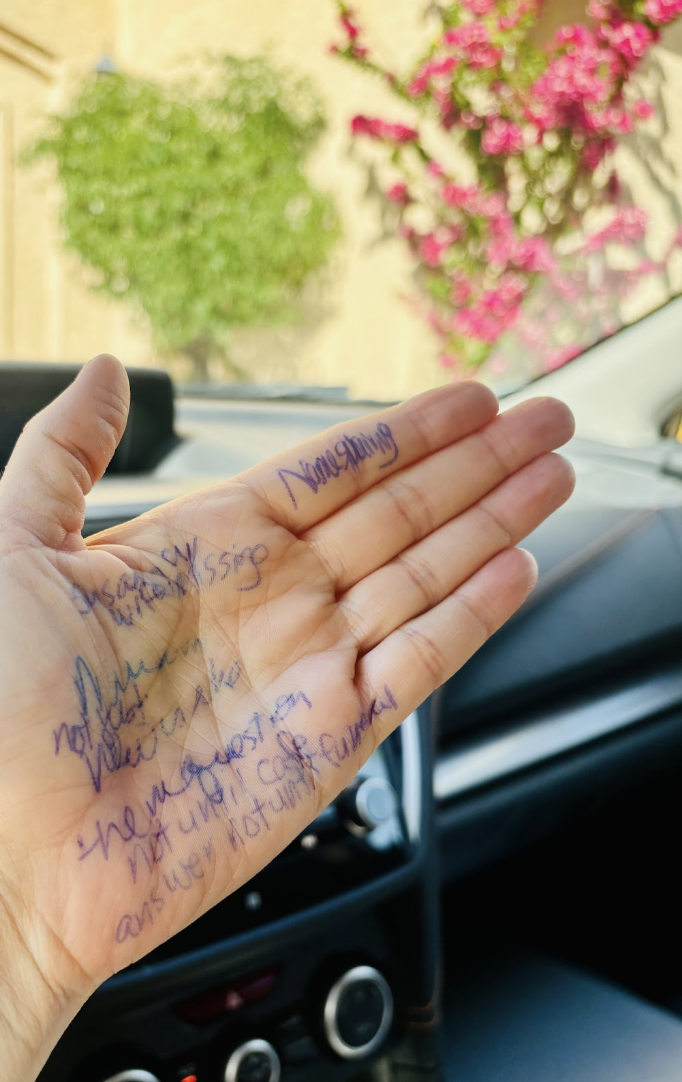What You Must Stop Doing if You Want to Finish Your Book
If you’re struggling to finish your own book, I really, really feel you. It took me FOREVER to finish my latest book, so all the advice in this post was especially hard won. Some of it might be hard to hear and even harder to implement.
When people talk about how to pull off writing a book, the conversation almost always turns to time — how to buy time, find time, make time, squeeze writing time into the cracks of an already full life. Actually, am still there.
But if there’s one thing I’ve learned, it’s that time isn’t the only thing that matters. Although I’ve written about how I’ve found time here and here, it’s also about brain energy. It’s about how many programs you’re running at once.
Here are some things I had to stop doing…and now some of them I’m still struggling to quit as I revise.
1. Stop Saying Yes to Everything (Even the Good Stuff)
It’s easy to understand why you should say no to things you don’t want to do. It’s harder to turn down things you deeply, truly want.
I’m not talking about skipping TV after a long day or postponing a family vacation. That matters, but I’m really talking about the bucket-list dreams. The “I’ve always wanted to…” goals that light you up inside.
You may have heard this from Warren Buffet, who famously says the secret to success is saying no to almost everything. For multi-passionate people (🙋♀️), this can be a huge challenge.
There are a lot of creative projects I want to work on besides my novel. If I had a few clones, I’d want to host a podcast or a show on Tucson’s incredible community radio station KXCI, finish writing a nonfiction women’s history book set in London that I’m ⅓ done with (my undergrad degree was in history), and maybe even become an international flight attendant again…if my body could handle that.
At this moment, I am also burning with another longtime dream — to play violin in a rock band. Not professionally, but definitely publicly, an amateur version along the lines of Picaresque-era Decembrists, Mashrou Leila, or Diego’s Umbrella (dare I say best band ever).
I just found out that Jason from Diego’s Umbrella has online fiddle lessons for this exact kind of music! I had to sit on my hands to stop myself from throwing down my credit card. I’m also a course junkie and would happily be a student of almost any subject for the rest of my life if it paid the bills.
Here’s the hard truth: I can’t do everything I dream of in one lifetime.
Right now, I want my book more. I can see it so clearly, the next book already glowing on the horizon. It’s a rare thing, that kind of clarity. I know I’m on the right path.
I’m pretty sure I’m going to be signing up for Jason’s class in the next year or two if he’s still doing it, but as for playing in a rock band, maybe that’ll come later. Maybe not.
But saying yes to everything means saying no to your book, even if you don’t realize you’re doing it.
2. Stop Making So Many Decisions
Every tiny decision you make throughout the day uses up a little bit of your mental energy — even the ones you don’t realize you’re making.
For me, having an email app on my phone is the worst. I’ll have the urge to check it constantly, even while I’m waiting at a red light. If I do, then there are the decisions on if/how/when to respond. Even if I resist, I’ve still just spent brainpower making a choice: Check it or don’t check it? That decision-making pull yanks me out of any creative thought I might have had. It clutters my mind before I even notice it happening. For that problem, I simply dumbed down my phone by removing email, social media, and news apps.
Another way to free up mental space is to cut out batch decisions. Make a meal plan once a week. Set certain clothes aside as your “writing day” uniform. I’m not perfect at this (just ask me how many nights a week we debate dinner), but every time I do it, everything — including my writing — gets easier.
Ever renovated a house? Then you know the sheer exhaustion that comes from being bombarded with constant decisions. Floorboards, faucets, grout colors — it’s endless. It wears you down faster than the work itself.
Writing a book is the same. You can’t afford to bleed away all your good mental energy on what’s for lunch.
Now I get a lot of ideas while driving....but when I don't have my voice notes handy, things get messy!
3. Stop Overloading Your Brain with Information
This one’s tricky because it often feels productive. Podcasts, articles, workshops — they’re all full of useful advice, right?
But it’s not just about the time you spend listening. It’s about your brain’s limited capacity for each day’s work. Carefully choose what you spend that on! It’s also about the mental noise that lingers afterward. Everything you take in is one more thing your brain is trying to process when it could be saving that space to build your story.
This year, I did something radical. I unsubscribed from my favorite podcasts. (Sometimes it still HURTS!) I spend a ton of time in the car shuttling my kids around, and when I’m headed to or fro without them in back, I love listening to a handful of fabulous hosts and their thought-provoking guest experts, scientists, and thought leaders. But if it’s thought provoking, that means it uses a lot of my mental energy. Also, their tips, advice, and insight usually encourage me to start spinning my wheels on endeavors that have nothing to do with my main goal—my book.
Instead, I started spending my time on the road zoning out or listening to ambient music, which helped me reserve more of my precious mental energy. And, because meditative tasks like driving engage the prefrontal cortex and free up the unconscious, it’s been prime creative time for breakthroughs on my book.
Curiosity is a gift, but when you’re writing a book, you have to protect your mind like it’s prime real estate. Only the most essential tenants get a key.
4. Carefully Weigh Big Changes
Sometimes change sparks creativity. A new city, a new job, even a new relationship can crack your world open and let all kinds of inspiration flood in.
But big changes also pull energy and attention away from your writing, often more than you expect.
When we moved into a fixer upper last year, I knew it would be disruptive. What I didn’t expect was how much emotion and brain space would be spent troubleshooting unforeseeable problems, juggling texts and calls and visits with contractors, choices for everything from the floor to the ceiling (goodbye popcorn!) and everything in between. Then months later I was still aimlessly searching for things in a new grocery store, trying to find the fastest way to my kids’ school, and making small talk with new neighbors. All while trying to pretend I could just “get back to work.”
If you’re planning a major move, job change, or relationship upheaval, just be aware: It’s not just the days you spend packing boxes. It’s the months your brain spends trying to find its way again.
Protect the Dream
Writing a book isn’t just about creating words on a page. It’s about building a life that leaves you enough mental, emotional, and creative space to bring that story into the world.
It’s about saying no — even when it hurts — to clear a path for the yes that matters most.
You don’t have to get everything perfect. You don’t have to carve out endless hours. You just have to protect enough of yourself that the book has room to live.
And trust me: When you’re holding that finished book in your hands, it will have been worth it.





